1 November 2016 | 09:00am - 16:30pm
The Royal Society of Medicine, London (UK)
OVERVIEW
This symposium will bring together pathologists, scientists and other health professionals, as well as members of the humanitarian NGO community to discuss and explore the role and contribution of pathology and laboratory medicine in responding to humanitarian disasters and public health emergencies. Symposium attendees will:
• Develop a critical understanding of the role that pathology and laboratory medicine services play in addressing humanitarian and public health emergencies such as conflict, disease outbreaks and natural disasters;
• Learn about the work and impact that pathologists and scientists are making in the humanitarian sector; and
• Provide information and advice to UK-based pathologists, biomedical and Clinical scientists, who may wish to develop their knowledge, skills and experience in humanitarian work.
CONFIRMED SPEAKERS
Welcome
-
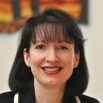
Dr Suzy Lishman
President, Royal College of Pathologists (UK)
Dr Suzy Lishman is a consultant histopathologist in Peterborough and was elected President of the Royal College of Pathologists in 2014. She is the College's youngest president, the first to be elected by the fellows rather than Council and only the second woman to be elected in its history.
Suzy’s priorities as president have been to engage with all members, wherever they work and whatever specialty they work in. She has been particularly keen to support trainees and to encourage medical students to consider a career in pathology. She has also strengthened relationships with politicians and policy makers to increase understanding of the central role of pathology in healthcare.
Suzy introduced National Pathology Week in 2008 and International Pathology Day in 2014, encouraging pathologists and scientists to talk to the public about what they do and why it is important to patient care. Over the last few years thousands of events have been held in hospitals, science centres and schools worldwide, raising the profile of the specialty, helping patients become better informed and encouraging the next generation of pathologists. -
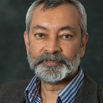
Dr Ian Hosein
President, Pathology Council The Royal Society of Medicine (UK)
Session I: Facing the Facts about Humanitarian Disasters and Public Health Emergencies
-

Fedra Pavlou
Editor, The Pathologist Magazine (UK)
After graduating with a degree in pharmacology from the University of Leeds in 1998, Fedra embarked on a career in scientific publishing and communications, which spans more than 17 years to date. Her previous roles include heading up specialist scientific editorial and writing teams at market analysis firm Datamonitor, global publishing house Advanstar, and global healthcare communications firm KnowledgePoint 360 (now an Ashfield company). Most recently she joined Texere Publishing as Editorial Director to head up a team of writers and editors to develop industry-leading publications in pathology, analytical science, pharmaceutical manufacture, translational science, and ophthalmology. As Editor of The Pathologist; she has launched this innovative publication alongside a team of highly skilled and talented individuals with an exceptional track record in niche, medical and scientific publishing. The Pathologist today serves as the voice of the pathology and laboratory medicine community, giving a platform to the profession to tackle issues, concerns and controversies, to effect change, to inspire the next generation, to celebrate success and to support the future of this invaluable field.
-
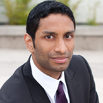
Dr Pranav Shetty
Humanitarian Health Adviser, Save the Children (UK)
Dr Shetty has worked for Save the Children UK since July 2016 as their Senior Humanitarian Health Adviser and prior to that served as Senior Technical Coordinator for Emergency Response for International Medical Corps. His primary experience lies in the start-up and ongoing support to health programs in emergencies. He has led and supported health teams in a variety of contexts including; after natural disasters (2015 Nepal earthquake, Typhoon Haiyan, Philippines); during epidemics (Ebola outbreak in Liberia); in conflict settings (Libya and during the current civil war in Yemen), and in protracted crises such as in South Sudan and Iraq. His focus is primarily centered on the delivery of high-quality health programs and services that are integrated with other sectorial areas, such as reproductive health; mental health and psychosocial support; WASH; and nutrition. Dr Shetty is a trained emergency medicine physician with a degree in public health and currently lives in London, UK.
-
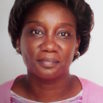
Lilian Kiapi
Senior Technical Advisor, UK International Rescue Committee (UK)
Lilian Kiapi is both the Senior Technical Advisor for Health Programs and Lead for non-communicable disease interventions for the International Rescue Committee (IRC). Lilian first joined the IRC in July 2005 working in Uganda and Ethiopia as their Reproductive Health Coordinator and Health Coordinator until April 2013. Between April 2013 and May 2014, Lilian worked with the Liverpool School of Tropical Medicine in Kenya, leading implementation of the flagship DFID funded “Making it Happen” maternal and new-born health operations research project before re-joining the IRC in May 2014. Lilian has worked as a public health practitioner for over 20 years and has led & supported emergency and development public health programmes in refugee, internally displaced and underserved communities in East and West Africa, including Uganda, Kenya, Tanzania, Ethiopia, Rwanda, Zimbabwe, Somalia, Liberia and Nigeria. Lilian is a facilitator for training such as competency based LSS-EOC, quality improvement modules, project design and clinical care for sexual assault survivors. She is a founder member of PULSE Network and HERD Initiative, both charitable organisations involved in community projects in Uganda.
Keynote Address
-
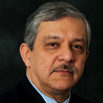
Dr Maadh Aldouri
Clinical Director of International Activities, The Royal College of Pathologists (UK)
Dr Aldouri is the Program Clinical Director for Cancer Services, Pathology and Haematology at Medway Maritime Hospital and Clinical Director of Pathology at Darent Valley Hospital in Kent. He also works as a Consultant Haematologist at King’s College Hospital, London. He is a graduate of the College of Medicine of Baghdad University, Iraq and has worked in the Middle East for over ten years. In 1993 he co-founded the Riyadh Haematology Group in Saudi Arabia, and in the UK established a network of Iraqi pathologists. He was awarded Fellowship of The Royal College of Pathologists in 1988, and was subsequently appointed as their International Advisor for the Middle East & North Africa (MENA) region in 2013. He has been Chair of the Haematology Speciality Group of Kent and Medway Cancer Network since 2001, member of South Thames Regional of the RCPath Council 2001-2003 and Chair of the Pathology Committee of the Inter-Collegiate Iraq Liaison Group. He was appointed as the College’s Director of International Affairs in January 2015.
-
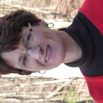
Professor Amy Patterson
University of the South (USA)
Ms Patterson is a Professor of Politics at University of the South (Sewanee). She has previously taught at Calvin College in the Department of Political Science. Patterson received her PhD in political science and African studies from Indiana University, Bloomington. Her research has examined the role of civil society in Africa, including how local organisations address issues such as AIDS and non-communicable diseases. She has conducted fieldwork in Senegal, Ghana, Uganda, Tanzania, Liberia, and Zambia. She is Editor of The African State and the AIDS Crisis, and author of The Politics of AIDS in Africa and The Church and AIDS in Africa. Her published articles on AIDS, civil society, and gender in Africa have featured in African Journal of AIDS Research, Journal of International Development and Global Public Health. She also serves on the governing boards of the International Research Network on AIDS and Religion in Africa and the Global Health Section at the International Studies Association. She teaches courses on international relations, African politics, global health and development, the politics of AIDS, and democratisation.
Session II: Voices from the field
-
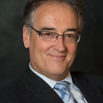
Dr Alec Howat
President, British Division of the International Academy of Pathology (UK)
Dr Howat is President of the British Division of the International Academy of Pathology (BDIAP). He graduated from Newcastle University in 1978 and received his membership of the Royal College of Pathologists in 1986. He has been senior lecturer in pathology at Sheffield University and Consultant Histopathologist at Royal Preston Hospital, Preston. He now works in a busy district general hospital as part of a team of 11 Consultant Histopathologists. Since 2008, Dr Howat has been working with colleagues in sub-Saharan Africa to help improve Histopathology services in the region and he is a proud Founder Member of the College of Pathology of Eastern, Central & Southern Africa (COPECSA). His other professional interest is in quality in pathology. He has been on the Clinical Pathology Accreditation (UK) Professional Advisory Committee, Chairman of the Histopathology & Cytopathology National QA Advisory Panel, and Chairman of the Joint Working Group for QA in Pathology.
-
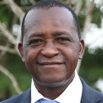
Professor Sahr Gevao
Chairman of Laboratory Technical Working Committee Ministry of Health & Sanitation (Sierra Leone)
Sahr is a Professor and Head of the Department of Haematology at the College of Medicine and Allied Health Sciences (COMAHS), University of Sierra Leone. He is also a Consultant Haematologist and Head of the National Blood Transfusion Services at the Ministry of Health and Sanitation.
He was the Head of the Laboratory Pillar and Chair of the Laboratory Technical Working Group during the Ebola virus disease outbreak in Sierra Leone and is currently leading efforts to create a bio bank. His other roles include Country Lead of The Global Emerging Pathogen Consortium, Lead of the Viral Hemorrhagic Fever Consortium and Principal investigator of the African Center of Excellence for the Genomics of Infectious Diseases in Sierra Leone. He was previously the Deputy Vice Chancellor and Head of the College of Medicine and Health Sciences; Pro Vice Chancellor, University of Sierra Leone; Chair, Faculty of Laboratory Medicine, West African College of Physicians.
-

Dr Rafil Yaqo
Director, Duhok Specialised Laboratory Centre (Iraq)
Dr Yaqo graduated from Duhok University, Medical College, Iraq in 2000 and later received his Fellowship of the Iraqi Board in Pathology in 2009. He worked as a Certified Pathologist for the Histopathology Department, Central Diagnostic Laboratory, Iraq, and later became their Director in 2012. He is also a Lecturer at the University of Duhok. In 2012 he completed the American Society of Hematopathology’s Visitor Training Program in Haematopathology at Massachusetts General Hospital in Boston, Massachusetts. He was awarded the Certificate for Global Bio-Risk Management Trainer by Sandia International Laboratory Organization, USA in 2014. He has published works include Lymphoma pattern in northern Iraq, WHO classification of 270 cases (Indian Journal of Cancer, 2011) and the Association of HLA-B*27 with ankylosing spondylitis in Kurdish patients; international Journal of Rheumatic diseases, 2015.
-

Professor Guy Rutty
Chief Forensic Pathologist, East Midlands Forensic Pathology Unit (UK)
Professor Rutty is Chief Forensic Pathologist to the East Midlands Forensic Pathology Unit (UK) and Foundation Chair in Forensic Pathology at the University of Leicester. His other roles include Chair of the Scientific Advisory Committee of the International Commission on Missing Persons (ICMP), Deputy Chair of the Pathology and Anthropology Working Group of the Steering Committee for Disaster Victim Identification of Interpol and founder Editor-in-Chief of the International Forensic Journal, Forensic Science, Medicine and Pathology. Professor Rutty provides forensic pathology and mass disaster services to police forces and countries internationally. He is an advisor to both association and governmental bodies in relation to forensic pathology developments and services, including the Home Office in relation to contaminated mass fatalities, the Department of Health in relation to forensic and mass fatality radiology and the National Police Improvement Agency Missing Person’s Bureau. He received the Metropolitan Police Assistant Commissioners Commendation for his work with the European Commission funded exercise, Operation Torch in 2008 and was awarded the Member of the Order of the British Empire (MBE) in the Queen’s Birthday Honours List (June 2010) for services to the police and counter terrorism.
Session III: Getting involved
-
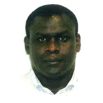
Dr Kweku Ackom
Senior Health Advisor, International Medical Corps (UK)
Dr Ackom is a Senior Health Advisor for International Medical Corps, UK and is their focal person for disease control. He currently supports eight International Medical Corps’ country programmes in Afghanistan, Pakistan, Philippines, Nepal, Ukraine, Greece, South Sudan and Kenya. He is responsible for working with the country programme teams to ensure technical quality and provide technical assistance in the programme development and capacity building of technical and programme personnel. Dr Ackom has over ten years’ experience with different NGOs in public and global health and through his work in resource-limited countries; which include Colombia, Afghanistan, Pakistan, Sierra Leone, Liberia, Uganda, Somalia, Swaziland and South Sudan. His work has involved working across the ‘relief to self-reliance’ spectrum with in-depth understanding of emergency and recovery programmes. He is passionate about his work and strongly believes in equitable distribution of social services including health.
-
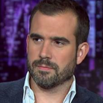
Dr Xand van Tulleken
Trustee, Doctors of the World (UK)
Dr Xand studied medicine at Oxford University and specialised in Tropical medicine. As a junior doctor he worked in the genocide in Darfur and this inspired a passion for the politics and medicine of conflict zones which lead to his Academic appointment in the US. Xand has presented numerous shows for the BBC and Channel 4 including: Blow Your Mind, Horizon, Secret Life of Twins, How to Lose Weight Well and Medicine Men Gone Wild. This year Xand, alongside his twin brother Chris reported on the harrowing winter migrant crisis in Frontline Doctors for BBC One. Xand was at the forefront of Ebola research appearing on US networks speaking about the crisis including Al Jazeera, MSNBC, FOX5 and BBC world service. He was the health reporter for CNN International. He now works between New York, Harvard and various humanitarian crises all over the world.
PROGRAMME
-
PiG 2016 Programme
RCPath International September 2016
REGISTRATION FEES
£60:00 Fellows
£45:00 Trainees, Biomedical Scientists & Non Governmental Organisations
£70:00 Non members
Promotion: For a limited time only we are offering a 10% discount on registration fees for this event. Discount will be applied at time of booking.
TRAINEE & NGO BURSARIES AVAILABLE!
A limited number of bursaries have been made available to enable UK Trainees and NGOs to attend our 2016 Pathology is Global Symposium. For further details please click here. Applications close on Wednesday 19 October.
BOOK NOW!
Author(s)

Miss Gemma Hooley
- International Administrator
